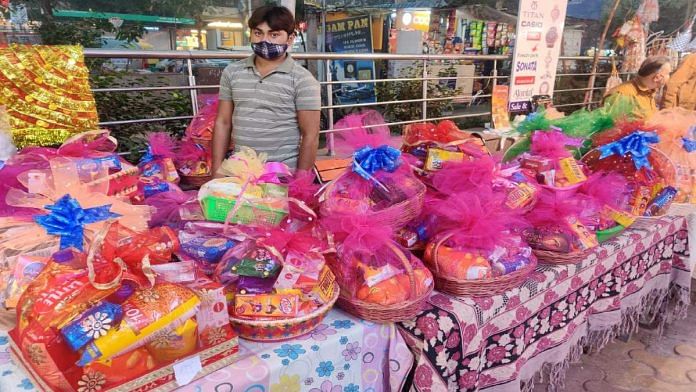New Delhi: In some parts of India, people are capturing the zeitgeist of the Covid pandemic this festive season with gift hampers that include hand sanitisers. They are also sacrificing the usual Diwali pomp for smaller get-togethers and quick gift exchanges.
For many traders, meanwhile, this Diwali marks a dark time, a far cry from past years, when the festive season brought an assured rush of customers.
With the pandemic far from over, Diwali this year will be a different affair for people across India.
While the residents of Delhi-NCR have been familiar with fireworks bans during the festive season for the past few years, many other states have announced similar prohibitions this year for the comfort of Covid-19 patients. This has come as a fresh blow for fireworks sellers at the end of an already cruel year.
With social-distancing guidelines in place, many people told ThePrint that they are staying away from big Diwali get-togethers, and celebrating the festival with friends and family via video calls. Yet others are junking the beloved tradition of trawling the markets for Diwali products — gifts, sweets, and lights — to settle for online shopping, keen to avoid crowded markets.
ThePrint spoke to people in several Indian cities, including Guwahati, Bengaluru, Hyderabad, Delhi and Chandigarh, to understand how they are ushering in the festive season in 2020.
In a year that has wrought havoc around the world, the stories that emerged ranged from heart-warming to heart-breaking.
Also Read: Diwali firecracker ban is latest blow to Sivakasi factories, 2020 loss seen at Rs 800 cr
Losses, losses, losses
Ajit Mohan, a firecrackers trader in Haryana, said sales have been low over the past few years with many people shunning Diwali fireworks to do their bit for the smog that envelops parts of North India every winter.
However, this year has been specifically difficult, he added, citing the year-long knock dealt by the pandemic and the ensuing lockdown. The Haryana government had banned fireworks earlier this week, but subsequently allowed a two-hour window for bursting crackers. To Mohan, the reprieve is just cold comfort.
“My workers and I have suffered a lot and now we can’t sell firecrackers to revive ourselves. Even though the government has allowed bursting of crackers for two hours, people aren’t coming out of their houses as such to buy them,” he said. “We were hoping at least the festival of lights will bring some relief, but it hasn’t.”
Shankar Pal, a shop owner at Sarojini Nagar — one of the largest wholesale markets in Delhi for Diwali items — said there has been a decline of at least 60 per cent in business this year.
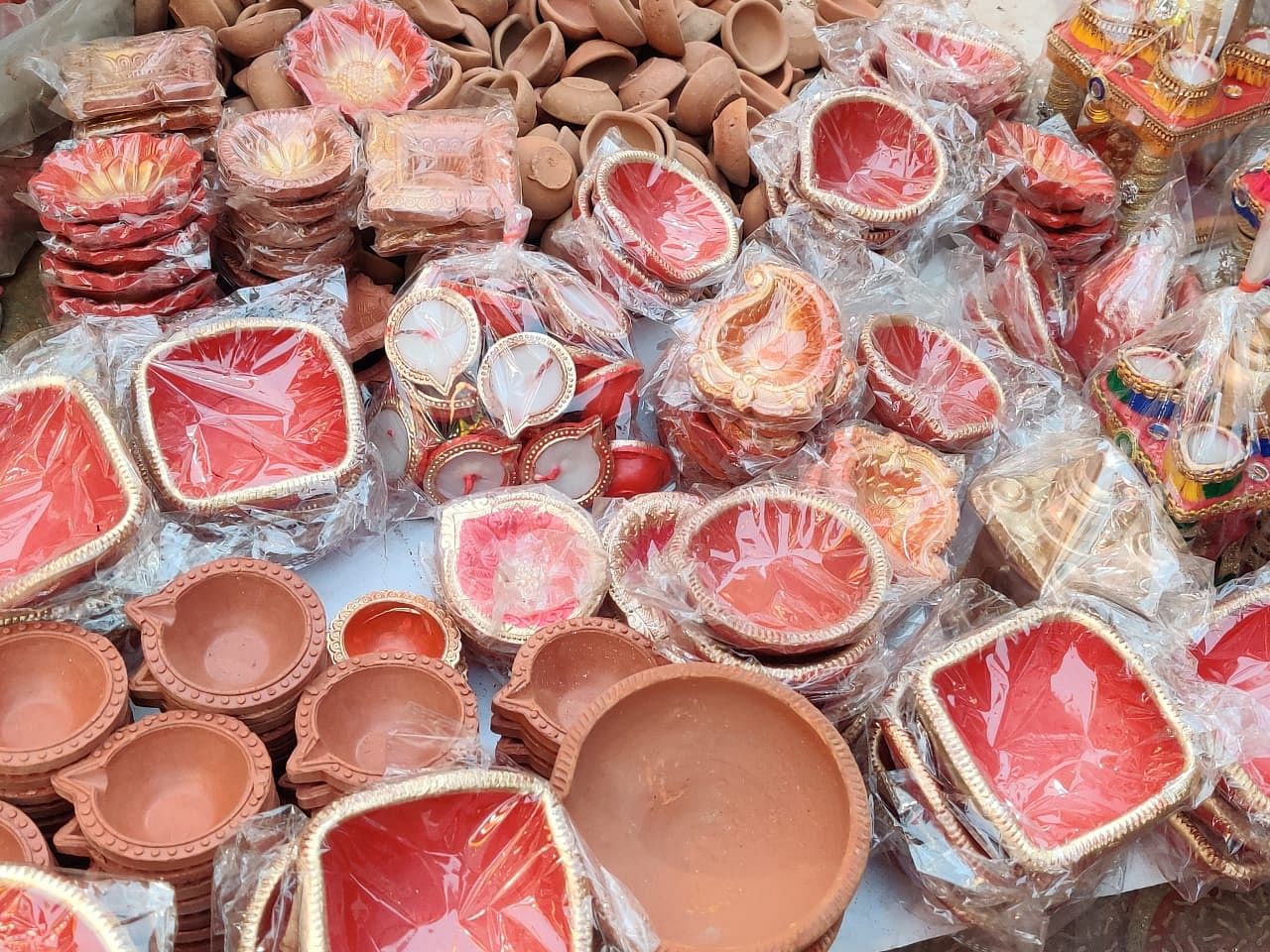
“Not many want to buy light products like diyas and lamps, probably because there will not be celebrations like other years,” he added. “In previous years, the daily stock would be over by evening, but now we have to keep bringing them back to the shop the next day,” Pal said.
In Hyderabad, Sriram Vyas, a shop owner at Begum Bazaar — one of the largest wholesale markets in the city — said there has been at least a 20-30 per cent downfall in Diwali business, including sales of dry fruits, sweets etc.
Through the previous years, during the festive season, Swaran Singh’s electrical appliances shop at Sector 18, Chandigarh, drew a throng of electricians who sought to stock on wire to install lights in houses across the city. For him, the absence of electricians in similar numbers is a sure sign that Diwali won’t be the same this year.
“Electricians who go into people’s houses to install lights are not buying as much this year. They are not going into houses to install lights because of the coronavirus scare,” Singh added.
Another factor that may be affecting sales at physical stores may be the fact that many shoppers are going online for their Diwali purchases. For Rashna Choudhary, a Mumbai resident, the web world proved an ideal alternative to crowded marketplaces. “There is a mad rush in markets, so I am only buying goods online this time,” she said.
The ‘Atmanirbhar Bharat’ impact
In some markets, PM Narendra Modi’s clarion call for an ‘Atmanirbhar Bharat’ — meant to boost supply and demand of domestic alternatives — has presented a strange predicament for shopkeepers.
Traders across Delhi, Kolkata and Bengaluru told ThePrint that they are all for shunning the cheap Chinese lights that flood Indian markets — especially in light of China’s aggression at India’s border in eastern Ladakh.
However, many said they find themselves forced to sell Chinese lights this year as they are trying to dispose of existing stocks. And Chinese lights — cheaper than Indian variants — are sometimes exactly what customers seek, they added.
Raman Srivastava, a light-seller at Delhi’s Malviya Nagar market, said he has been trying to sell India-made lights this Diwali but customers only opt for “cheaper Chinese products”.
Added Venkateshwara, who runs a small business of decorative items in Bengaluru’s Indiranagar, “Customers come to us asking for twinkling lights, tea lights, or artificial diyas, which, as of now, are products sourced from China. But given a choice, we will sell Indian products first.”
Tarun Pal Singh, a customer who spoke to ThePrint at Delhi’s Chandni Chowk market, said calls to go local would only work if markets weren’t teeming with less-expensive Chinese variants.
“Last week, I bought an India-made light that cost me Rs 180. China-made lights would have cost me only Rs 60-80. One must understand that even though India-made lights might be more durable, people are looking for variety at lower costs,” he added.
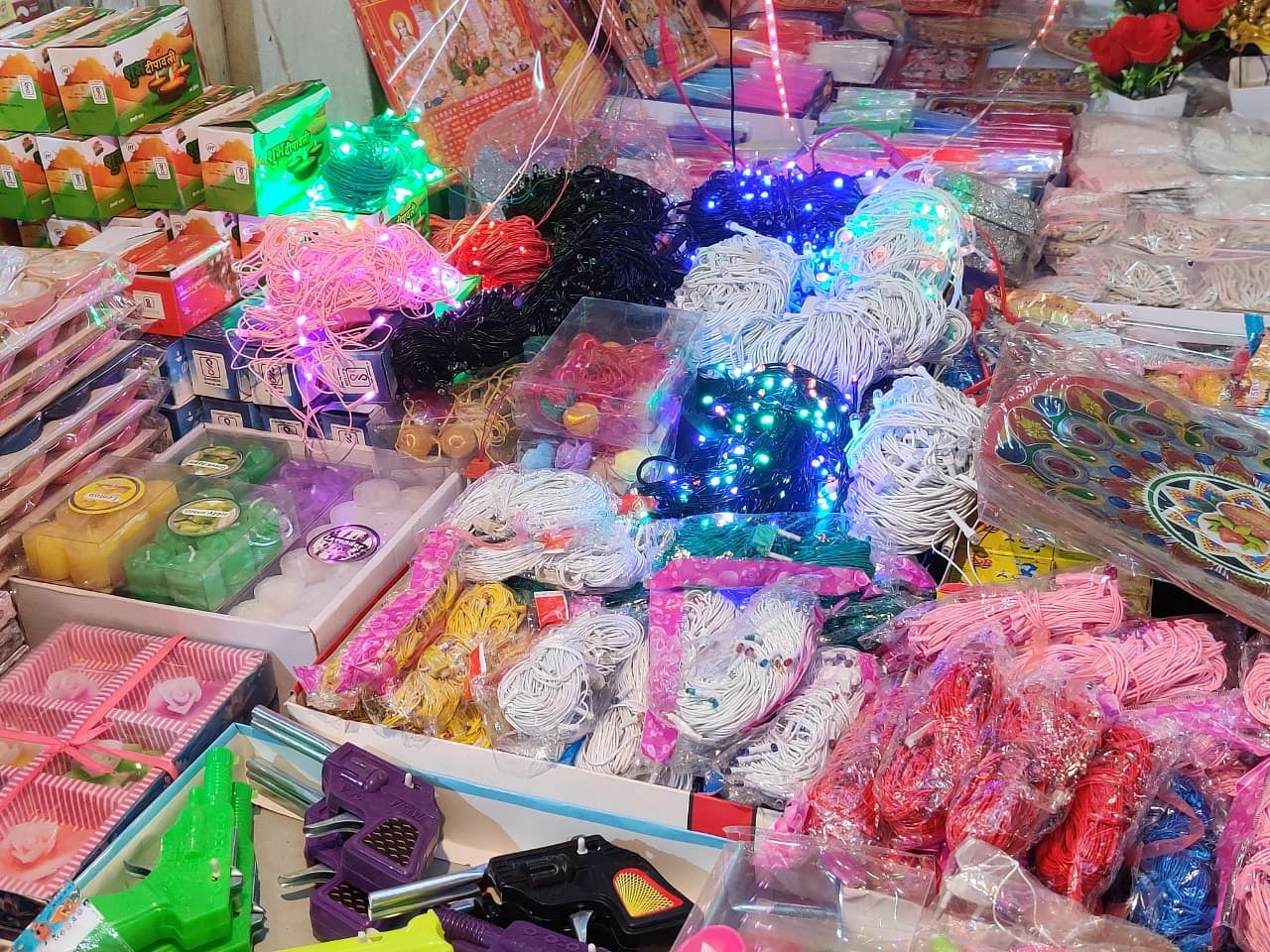
Some customers, meanwhile, have chosen to go a different way altogether, opting for earthen diyas — one of the most striking symbols of Diwali — in a bid to help the artisans who craft them.
“Diyas are symbols of Diwali. I bought 20 dozen diyas for my house. No Chinese lights this year,” said Rohit Singh, a resident of Rajajipuram area in Lucknow.
Bengaluru-based social media influencer Hrish Thota has done the same thing.
“We bought diyas for Rs 30 each from the local pottery vendor on the streets. Covid has hurt livelihoods and this is a way to help them,” he said.
Anshu Saxena, another Bengaluru resident, said while Diwali this year might be dull, the caution is in the larger interest.
“Local roadside diya sellers say their business has seen a huge decline. Diwali is a very big festival across the country and people love to brighten their homes with lights. It is also important to propagate and support an ‘Atmanirbhar Bharat’. While this Diwali may be dull, being careful and ensuring we are ‘vocal about local’ can ensure we celebrate many more happier Diwalis in the years to come,” she told ThePrint.
In Assam, many residents of Biswanath district’s Gohpur said they have decided not to use fancy lights to decorate their homes this Diwali.
At least 15 families of the Gamilighat-Mailbazar area in Gohpur, about 300 km from Guwahati, have each made 50,000 lamps or diyas for the Diwali market.
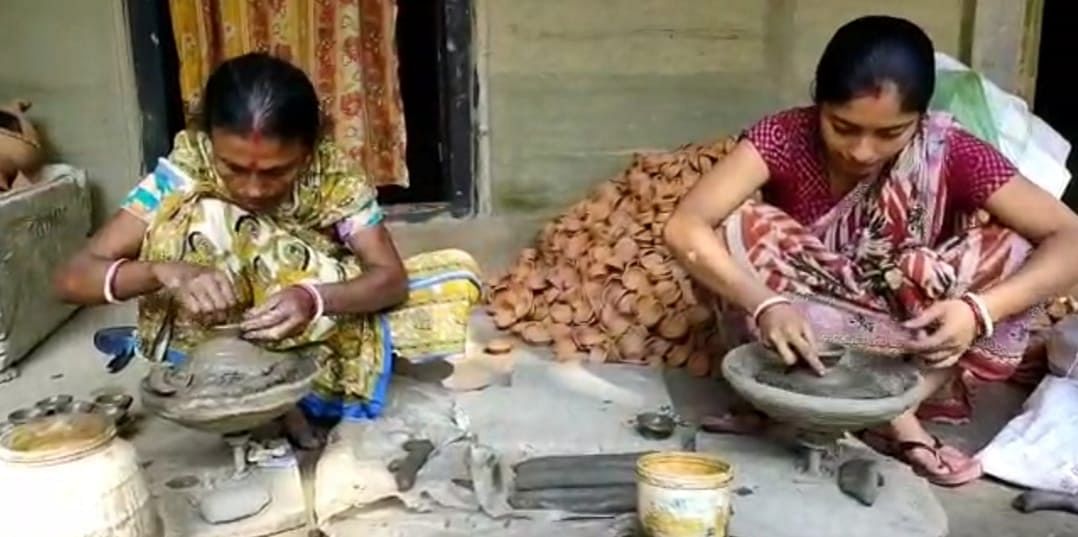
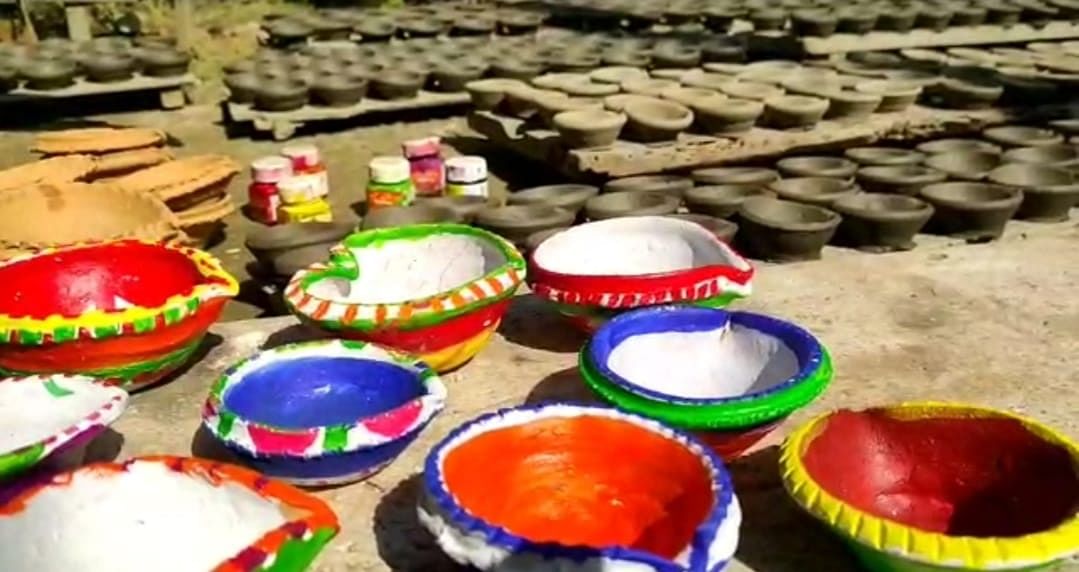
“These painted lamps are sold for Rs 15-20. This time, the sale has been good. People are preferring our hand-made lamps to Chinese lights. If not for Covid-19, the production and sales would have been better,” said Sunil Paul, a resident of Gamilighat-Mailbazar who makes lamps.
Also Read: Why Diwali firecracker ban is explosive combination of health, religion, politics, economics
Virtual parties ahoy
Far from the economic ramifications of the pandemic, Diwali in the times of Covid will also be different in the way it is observed in different households. Since festivals are incomplete without friends and family, many people reluctant to violate distancing guidelines are opting for online parties.
“Earlier, our Diwali parties used to be huge, lots of people exchanging gifts, drinking and dancing till late night. However, this year, we cannot afford to increase the risk of Covid-19. Therefore, all our friends have decided to have a virtual party Saturday night,” said Akshita Madan, a Delhi-based entrepreneur.
Rehan Chillar, a Mumbai-based photographer, added that “Diwali party-hopping will now be Zoom party-hopping”.
“We cannot violate social-distancing norms, so, this year, instead of hopping between Diwali parties, we will be celebrating the festival of lights on Zoom calls, hopping from one friend circle to another, virtually,” Chillar said.
Minhaz Ali of Bengaluru plans to celebrate Diwali with an online drinking party. “We will play cards and have our drinking games online. Later, we have plans to even watch a movie together, some old Bollywood movie,” Ali said.
Anshu Saxena of Bengaluru said she will also celebrate Diwali virtually, and recommended that it is something everyone should do.
Neeraj Kumar of Delhi, however, has decided to be cautious in a different way, saying he will visit a few friends just to exchange Diwali gifts. “I will load the gifts and go to their places, sanitise everything and then exchange. We have discussed not to call too many people and some exchanges won’t last for more than 20 minutes,” Kumar said.
As far as Diwali gifts are concerned, shopkeepers say they are still receiving orders for sweets and dry fruits, with some claiming sales have been similar to previous years.
“Most people now order through Dunzo, Big Basket etc… the packages might be smaller, but people are ordering, what else will they do this Diwali otherwise?” said Mohan Prakash, who owns a dry fruits and sweet shop at Delhi’s Malviya Nagar market.
Added Om Sharma, a sweets vendor who operates from Chandni Chowk, “The times are grim, we cannot complain much since Covid has forced people to remain indoors and not visit too many places… Sweet orders have come but there have been comparatively fewer bulk orders this year.”
While dry fruits and sweets are gift staples for the Diwali season, a year like 2020 demands a special touch.
Mohammad Idrees Chaudhary, general secretary of Bengaluru’s Russell Market Traders Association, said some of this year’s Diwali gift packs include hand sanitisers. These hampers, he added, are being sold as anti-Covid immunity booster hampers as dry fruits contain vitamins.
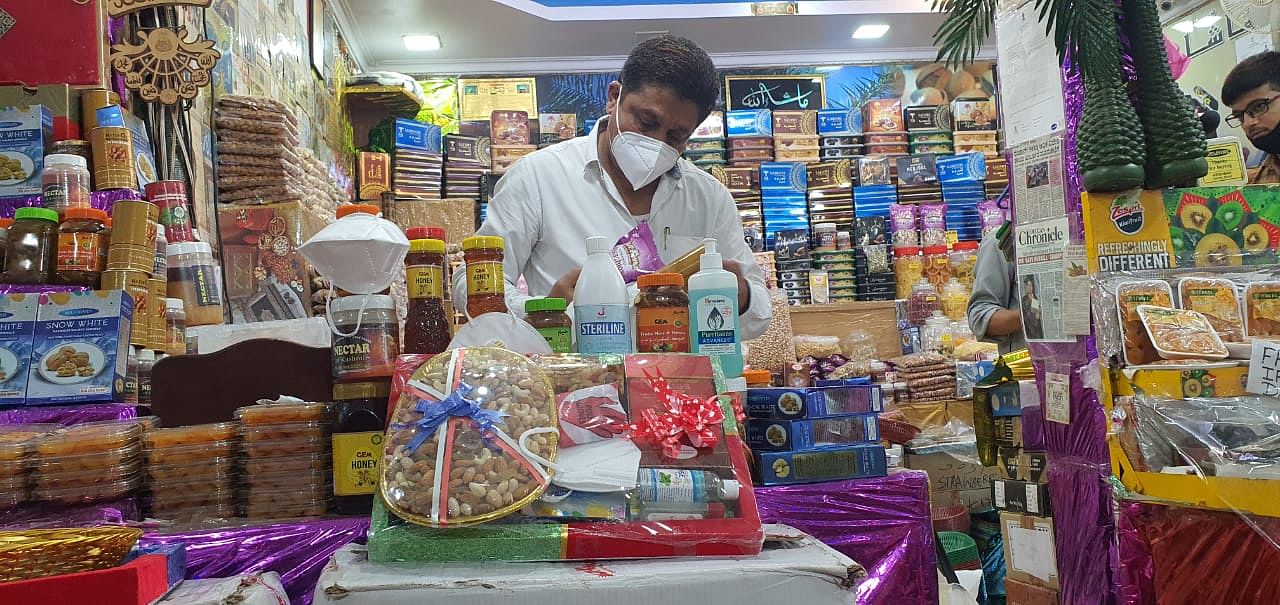
After all, what better gift amid a pandemic than wishes for good health?
With inputs from Karishma Hasnat, Madhuparna Das, Rohini Swamy, Chitleen Sethi, Rishika Sadam & Prashant Srivastava
This report has been updated with additional information; a typo in the name of influencer Hrish Thota has been corrected
Also Read: Modi govt announces Rs 2.6 lakh cr stimulus package ahead of Diwali to boost jobs, housing


